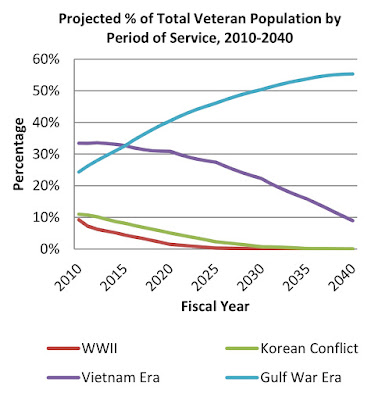“Inside each book is a
man,” said Fireman Montag in Fahrenheit
451. The Forever War (reviewed below) was the work of Joe Haldeman as he was 1974. The
story was modified by Joe Haldeman of 1997. The current edition, with a Foreword
by John Scalzi and endorsements by William Gibson, Cory Doctorow, Greg Bear, and
Stephen King, came out in 2008. Although George Lucas’s frequent repairs to Star Wars: The New Hope may offer a door
into revisionism, ultimately the author stands by the work even though time is unkind.
The apocryphal middle third (Chapters 23, 24, and 25)
delivers a world impoverished by war. Early in the story, Pvt. William Mandella explains
that their IQs of 150+ put him and his team in the draft, the Elite Conscription Act of 1996. They suffer horrible
attrition. No wonder the world is getting worse. We are killing off our own
best and brightest.
More to the point, Haldeman apparently accepted the
premise that war could be good for the economy. At the end, Maj. William
Mandella paraphrases his final debriefing: “The
fact was, Earth’s economy needed a war, and this one was ideal. It gave a nice
hole to throw buckets of money into, but would unify humanity rather than
dividing it.” The truth is that power and market are dichotomous, contradictory, and mutually exclusive. If you make economic decisions for military or political reasons, the result must be less than optimal: you will lose money; you will become poorer.
Haldeman's assumption rests on deeper beliefs in the efficacy of a command economy. In order to re-establish order, the UN takes over food. Calories (kilocalories: K) become the unit of money. It is not perfect, of course. The system has safety valves in unregulated farms and tolerated black markets. And for all of the authority evident, gangs run rampant; decent people hire body guards for trips to the grocery. But centralized authorities control what Lenin called “the commanding heights of the economy.” It might not be optimal, but it is better than mass starvation. Or so they claim. But the command economy leads to starvation, with those illicit safeties as the only brakes on the inevitable slide. That the novel took both Nebula (1975) and Hugo (1976) awards speaks to the fact that Joe Haldeman is not alone in his universe.
Haldeman's assumption rests on deeper beliefs in the efficacy of a command economy. In order to re-establish order, the UN takes over food. Calories (kilocalories: K) become the unit of money. It is not perfect, of course. The system has safety valves in unregulated farms and tolerated black markets. And for all of the authority evident, gangs run rampant; decent people hire body guards for trips to the grocery. But centralized authorities control what Lenin called “the commanding heights of the economy.” It might not be optimal, but it is better than mass starvation. Or so they claim. But the command economy leads to starvation, with those illicit safeties as the only brakes on the inevitable slide. That the novel took both Nebula (1975) and Hugo (1976) awards speaks to the fact that Joe Haldeman is not alone in his universe.
When the book came out, it was “obviously” supposed to be
“about Viet Nam.” True enough, Viet Nam was Haldeman’s war experience. But the
story does not parallel that war. The Taurans are, indeed, genetic collectivists;
and they copy technology rather than inventing it. But Earth is on its own: we
have no corrupt locals to defend. While there are hints of resentment, the
streets are not filled with anti-war protestors. And no one in uniform
questions the purpose for the war or the strategies for prosecuting it. So, this
was not really Viet Nam.
But the idea of
the forever war resonates within the ranks of American armed forces today. For
them, it is GWAT (“gee-watt”): the Global War Against Terrorism. It is an
accepted truth, a cliché, that Afghanistan is not a 15-year war, but 15
one-year wars as troops cycle in and out, never to establish and develop the accumulated
personal experiences that become institutional memory. We never learn from our mistakes. We never get a feel for how to do things right. For 70 years, the United
States had bases in over 50 nations. Today, that includes a division – 1000 soldiers
– of combat troops who are “advisors” in Niger. They are not coming home anytime soon.
PREVIOUSLY
ON NECESSARY FACTS

I am surprised we've transitioned from "Vietnam Syndrome" to "Forever War" in my lifetime without any discussion or even vague nostalgia.
ReplyDelete